

This is the first time a cooperation forum between the EU and the Mekong countries has taken place in Vietnam. The forum focused on discussing EU support in the Mekong sub-region so far, and future opportunities and challenges for EU-Mekong cooperation. The forum consists of four main discussion sessions including (i) Assessing the EU's participation in the Mekong sub-region; (ii) major trends in the Mekong sub-region; (iii) Opportunities and challenges for sustainable development in the Mekong region; (iv) Prospects of the EU-Mekong Partnership for Sustainable Development.
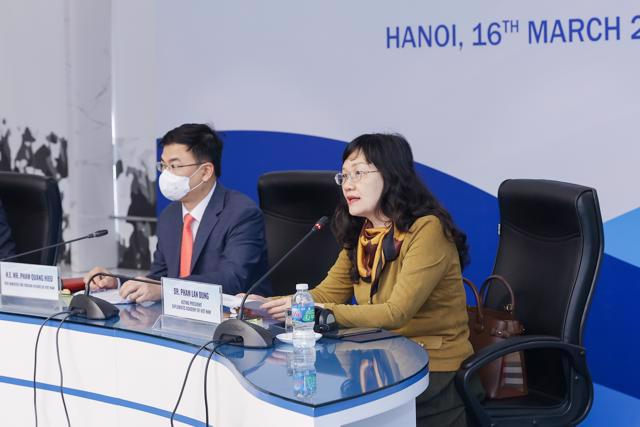
Speaking at the opening, DAV Acting President, Dr. Pham Lan Dung emphasized that the Mekong sub-region has become a significant point in the regional network of integration and connectivity. The Mekong River is a source of livelihood for people in the basin. Challenges for the Mekong sub-region have increased such as natural disasters, floods, droughts, harmonized development needs between economic growth and environmental protection, and transboundary challenges' response to water governance in the Mekong River. Dr Pham Lan Dung assessed the EU as a contributed partner to the Mekong sub-region via bilateral and multilateral cooperation programs in the framework of Friends of the Lower Mekong.
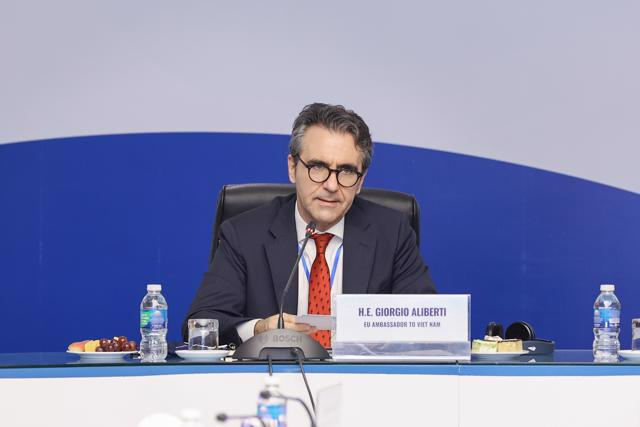
Delivering a speech at the opening, Ambassador Giorgio Aliberti, Head of the Delegation of the European Union to Vietnam, said that numerous global challenges have co-occurred in the Mekong river, making it an interesting region to develop solutions for climate change, water security, clean energy, agriculture, transportation and infrastructure, among other fields. In all these fields, the EU has desired to cooperate with regional partners that are suitable for EU Strategy for Cooperation in the Indo-Pacific and Global Gateway initiative, recently launched, to develop sustainable infrastructure and connectivity.
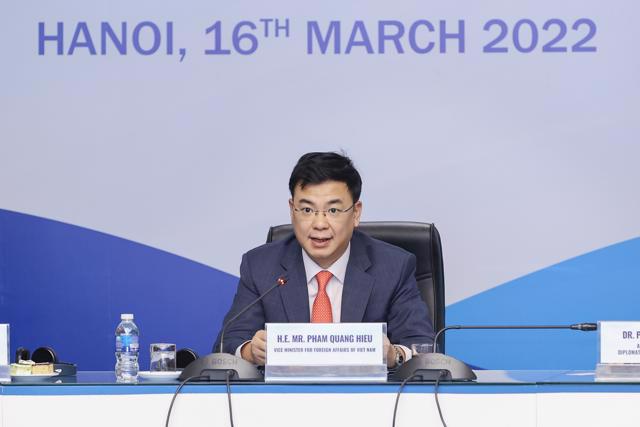
Delivering a keynote speech at the opening, Deputy Foreign Minister Pham Quang Hieu emphasized that the Mekong sub-region has attracted attention and become a priority in the policy of development partners. In 2020, the ASEAN agenda recognized the Mekong sub-region and other sub-regional cooperation mechanisms in Southeast Asia. A sustainable and connected Mekong sub-region will contribute to building the ASEAN community and strengthen ASEAN's central role in the region. Deputy Foreign Minister Pham Quang Hieu highly appreciated the initiative of the EU Delegation to Vietnam and the DAV to organize a forum, emphasizing that Vietnam welcomes the participation of development partners in which the EU is a capable and constructive partner; simultaneously, he wished to have more effective cooperation among mechanisms. Deputy Minister Pham Quang Hieu also reviewed the deepening development of Vietnam - EU relations. Vietnam is one of the countries in Asia that has the most comprehensive relations with the EU. In the sustainable development, Vietnam prioritizes cooperation against climate change, increasing the resilience and adaptability of society, people and businesses, contributing to achieving the goal of reducing net emissions to zero by the year 2050. The cooperation includes green economy, equitable and sustainable energy transition, and waste treatment technology sharing.
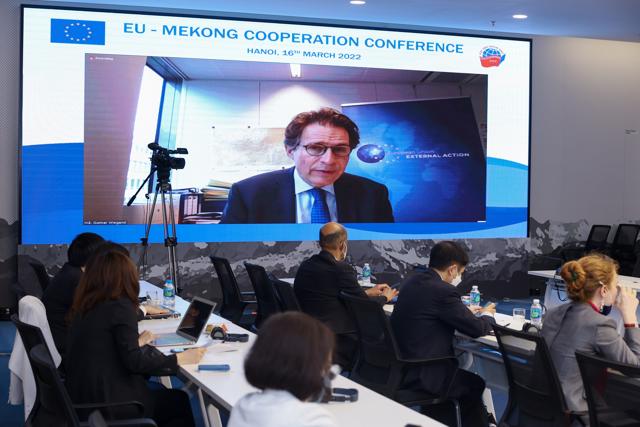
Speaking from EU headquarters in Brussels, Gunnar Wiegand, Director General for Asia and the Pacific at the European External Action Service (EEAS) said: “EU wants to strengthen its engagement in the Mekong subregion, this conference can bring out significant topics that we will consider for future cooperation. We will continue promoting public and private green investments in the Mekong subregion, also supporting the region's sustainable and equitable development and post-COVID-19 recovery”.
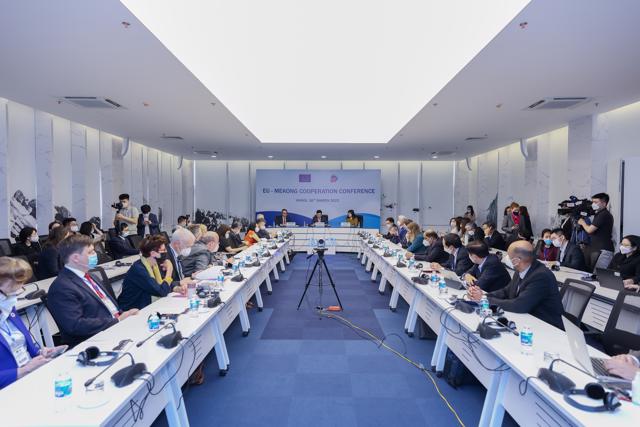
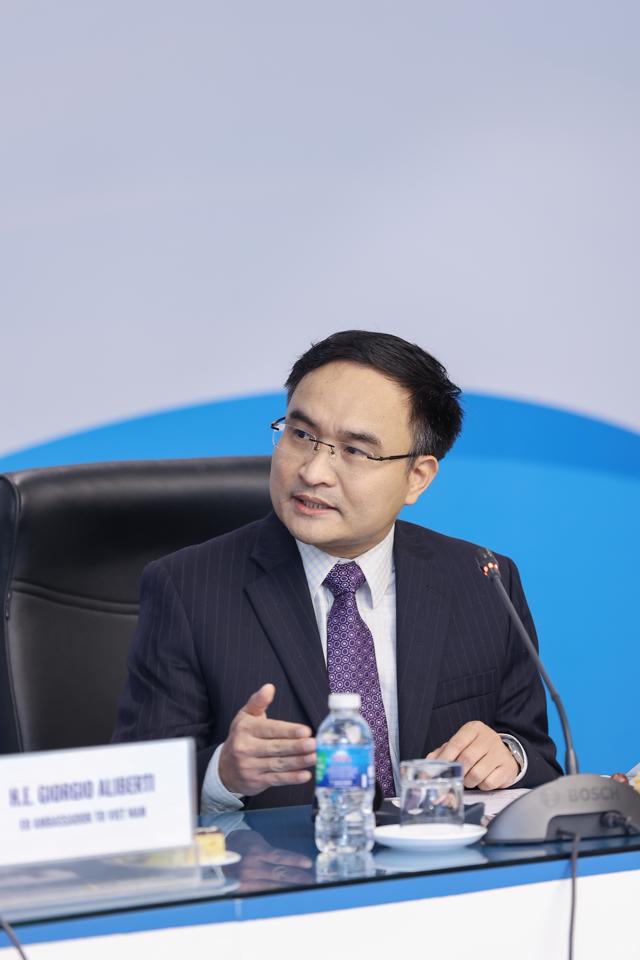
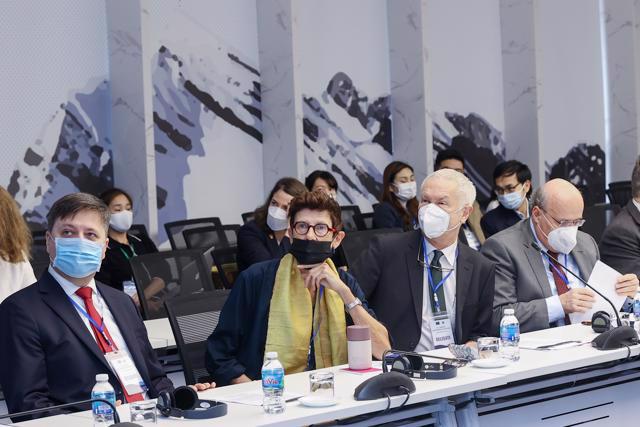
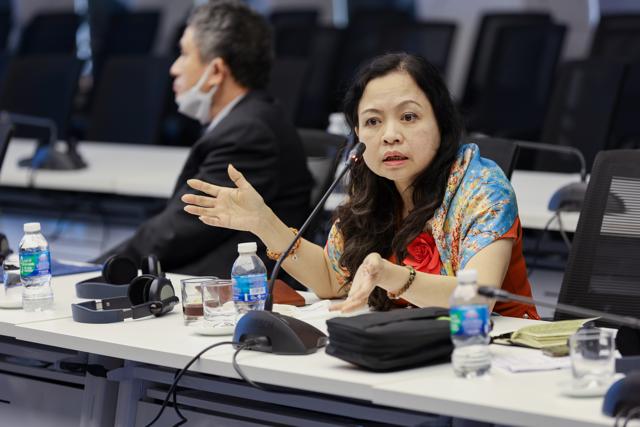

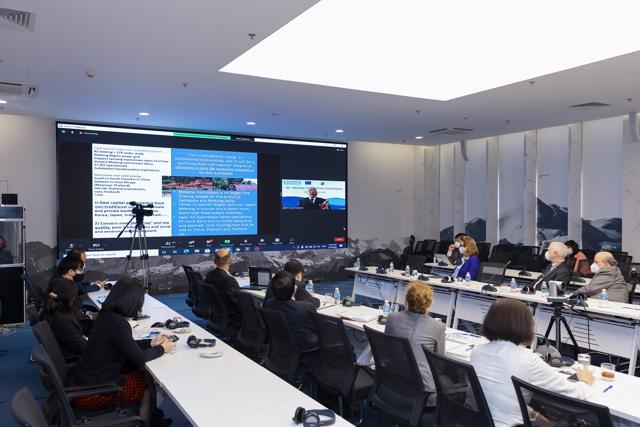
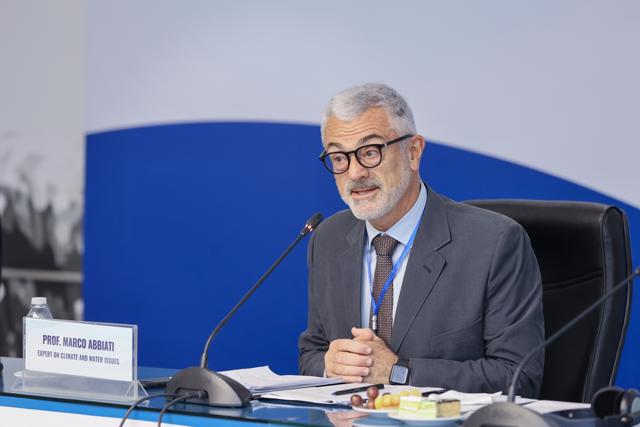
Discussions at the forum highlighted the positive contribution of the EU and its member countries to the sustainable development in the Mekong sub-region over the past time. On the basis of assessing major trends in the Mekong subregion, the delegates said that the sustainable development in the subregion encounters mutual challenges such as impacts of climate change on river basins, especially floods and droughts; unguaranteed water security due to lacking an effective water governance mechanism; the effects of geopolitical competition among great powers on the development of the subregion. The delegates said that Mekong countries need to adjust their development models towards more inclusive, sustainable development and green growth. Simultaneously, the internal and external region partners need to support subregion countries’ efforts effectively in enhancing the mechanism of water governance, including the Mekong River Commission. The comments stated that the EU needs a comprehensive and synchronous approach to further improve the efficiency of cooperation between the EU and its member countries for the Mekong sub-region in general and each Mekong country in particular./.